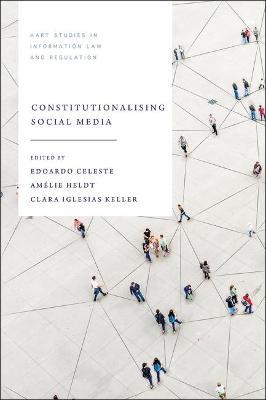Hart Studies in Information Law and Regulation
1 total work
Constitutionalising Social Media
Published 14 July 2022
This book explores to what extent constitutional principles are put under strain in the social media environment, and how constitutional safeguards can be established for the actors and processes that govern this world: in other words, how to constitutionalise social media.
Millions of individuals around the world use social media to exercise a broad range of fundamental rights. However, the governance of online platforms may pose significant threats to our constitutional guarantees. The chapters in this book bring together a multi-disciplinary group of experts from law, political science, and communication studies to examine the challenges of constitutionalising what today can be considered the modern public square.
The book analyses the ways in which online platforms exercise a sovereign authority within their digital realms, and sheds light on the ambiguous relationship between social media platforms and state regulators. The chapters critically examine multiple methods of constitutionalising social media, arguing that the constitutional response to the global challenges generated by social media is necessarily plural and multilevel. All topics are presented in an accessible way, appealing to scholars and students in the fields of law, political science and communication studies.
The book is an essential guide to understanding how to preserve constitutional safeguards in the social media environment.
Millions of individuals around the world use social media to exercise a broad range of fundamental rights. However, the governance of online platforms may pose significant threats to our constitutional guarantees. The chapters in this book bring together a multi-disciplinary group of experts from law, political science, and communication studies to examine the challenges of constitutionalising what today can be considered the modern public square.
The book analyses the ways in which online platforms exercise a sovereign authority within their digital realms, and sheds light on the ambiguous relationship between social media platforms and state regulators. The chapters critically examine multiple methods of constitutionalising social media, arguing that the constitutional response to the global challenges generated by social media is necessarily plural and multilevel. All topics are presented in an accessible way, appealing to scholars and students in the fields of law, political science and communication studies.
The book is an essential guide to understanding how to preserve constitutional safeguards in the social media environment.
